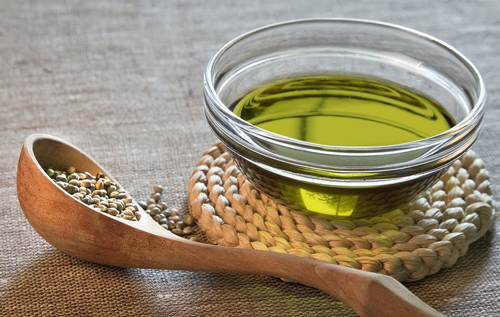Researchers Discover Natural Compound that Kills Cancer
Cancer is a ruthless disease that leaves nothing but destruction in its wake. It is aggressive and very few compounds on the planet are known to keep it at bay. But a growing body of evidence shows that a compound found in hemp can combat cancer. This anti-cancer compound is a cannabinoid called cannabidiol (CBD).

This discovery all started with Dr. Sean McAllister, a scientist at the Pacific Medical Center in San Francisco. Dr. McAllister studied cannabinoids like CBD for over 10 years in hopes to develop new treatments for cancer.
Through his studies, Dr. McAllister discovered that CBD is a powerful non-psychoactive compound that could inhibit the spread of breast cancer cells and tumor growth. With these findings, he published a scientific report detailing how CBD can destroy cancerous tumors by switching off a specific gene called ID-1.
A Seed of Inspiration
Following Dr. McAllister’s revolutionary discovery, researchers scrambled to find out more about this miraculous compound.
Now the scientific community has accumulated a great deal of evidence that confirms CBD is a potential therapy for both preventing cancer and slowing its progression.
One study published in the Breast Cancer Research and Treatment Journal, for example, found that CBD “inhibits human breast cancer cell proliferation” and “significantly reduces primary tumor mass as well.”
Simply put, this means that CBD can slow down the production of breast cancer cells and reduce the size of cancerous tumors.
But the anti-cancer benefits of CBD are not just limited to breast cancer.
Another study that evaluated the effects of CBD on colon cancer discovered that it could effectively prevent the development of new colon cancer cells.
There’s also research that found CBD is effective for several other forms of cancer including prostate, brain, and adrenal.
How Does CBD Combat Cancer?
What makes CBD so powerful is the fact that it fights cancer through several different mechanisms.
To give you an idea of just how powerful CBD is, here is an overview of what researchers have found regarding CBD and its ability to combat cancer:
• Triggers Apoptosis: Although scientists are not quite sure how it works, they have noticed that CBD can signal the immune system to kill off cancer cells in a process called apoptosis. This is a normal physiological response to eliminate unhealthy cells from the body, but sometimes the immune system overlooks cancer cells when it is not supposed to.
• Prevents Metastasis: Typically when cancer starts to develop, it forms in a specific area in the body (e.g., breast cancer or prostate cancer). When it develops, it then spreads (or metastasizes) to other areas making it much more dangerous. CBD is shown to prevent cancer cells from spreading through the body.
• Slows Angiogenesis: When a tumor develops, it will often form its own network of blood vessels to provide an extra supply of nutrients. The development of these blood vessels is called angiogenesis. Without angiogenesis, cancerous tumors cannot grow or spread.
• Cripples Cancer Cell Proliferation: One of the defining characteristics of cancer cells is their uncontrolled proliferation or replication. By affecting certain genetic triggers, CBD may be able to slow the replication of cancer cells.
Since CBD can help ease nausea and pain, scientists are also considering its use alongside chemotherapy.
How to Supplement with CBD
You can easily get all the benefits of CBD by taking a high-quality hemp oil that is rich in CBD. Search for one that is nano-emulsified for superior absorbability, 100% organic and free of pesticides, contains a premium dose of CBD, and made by a gentle extraction method to retain all the beneficial compounds found in hemp.
yogaesoteric
May 29, 2019
Also available in:
 Français
Français
